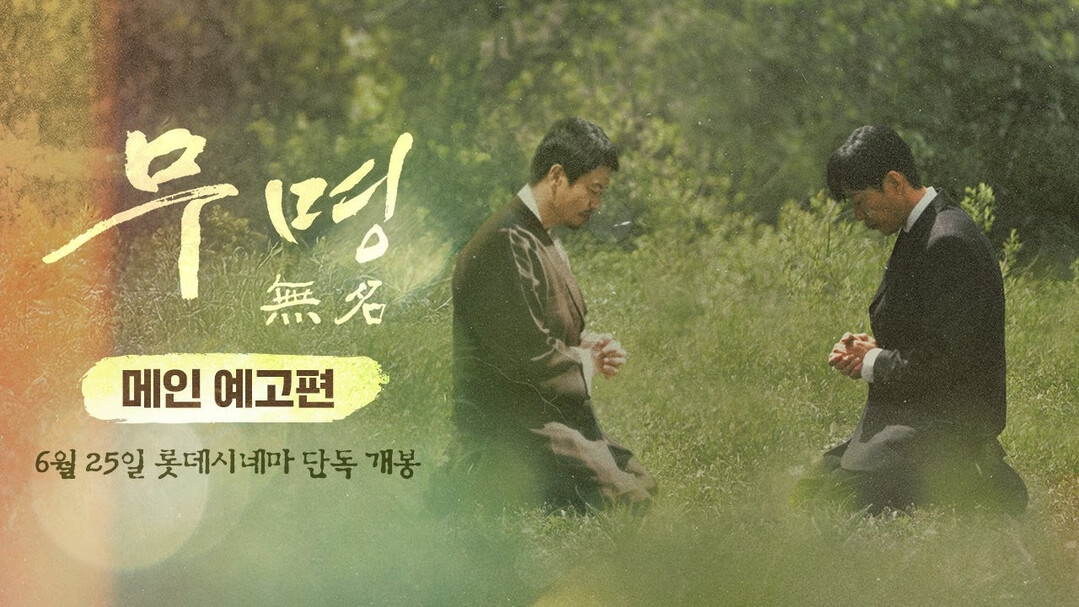
The history of Christianity in Korea began in 1885 when two 'blue-eyed' missionaries, Appenzeller and Underwood, stepped onto Korean soil through Jemulpo Port. As Korean Christianity celebrates its 140th anniversary this year, it has grown through their devoted efforts, and their stories are widely known. However, it's hardly known that missionaries were dispatched to Korea even from Japan, where Christianity spread more slowly than in Korea. Commemorating the 60th anniversary of diplomatic normalization between Korea and Japan, the recently released documentary film "Unnamed" (無名) sheds light on the hidden stories of two Japanese missionaries who dedicated themselves to Korea during the Japanese colonial period, tracing their forgotten footsteps in history.
Norimatsu Masayasu, Who Came to Joseon with an Apologetic Heart
The first figure highlighted in the film "Unnamed" is Norimatsu Masayasu (乘松雅休). He is recorded as the first Japanese missionary dispatched to Korea. Upon hearing the news of Empress Myeongseong's assassination in 1896, he felt deep guilt. At the time, Japan was inflicting deep wounds on Koreans through violence and force in the process of invading and colonizing Joseon. Against this historical backdrop, Norimatsu felt a personal responsibility for the brutal actions of his compatriots and resolved to 'preach the gospel to Joseon with an apologetic heart.'
He went to Korea not merely for missionary work, but with the intention of atonement for the harm Japan had inflicted upon Joseon. Norimatsu's faith and courage are even more remarkable given that he made this decision in the late 19th century, a time when Christianity had not yet taken root in Japan. His mission to Korea can be interpreted not merely as a religious activity but as an attempt by a Japanese individual to fulfill his ethical responsibility within the relationship between the two countries.
Oda Naraji, Resisting Shrine Worship and Called 'Jeon Yeong-bok'
Another Japanese missionary who came to Korea, inheriting the spirit of Norimatsu Masayasu, was Oda Naraji (織田楢次). Arriving in Korea in 1928, he preached the gospel while sharing the pain of Koreans during the dark period of Japanese colonial rule. In particular, he firmly opposed shrine worship, which was forced by the Joseon Government-General. At the time, shrine worship was a symbol of Japanese imperialism and part of the colonial policy to obliterate the Korean spirit. Resisting this was extremely dangerous for a Japanese person, and indeed, Oda Naraji was severely tortured by the Japanese military for his sermons against shrine worship.
Nevertheless, he did not waver in his convictions and was respected by Koreans, who called him by the Korean name 'Jeon Yeong-bok' (全永福). His Korean name is symbolic evidence of his efforts to deeply integrate into the lives of Koreans and his will to share their ethnic suffering with them. Oda Naraji's dedication serves as an example of love and faith transcending nationality even during the Japanese colonial period, holding significant meaning in the history of the Korean church.
Re-examining Korea-Japan Relations and the Role of Missionaries
President Lee Jae-myung recently described Japan and Korea as "close yet distant countries" and "neighbors sharing a front yard, inseparable" during a Korea-Japan summit. These remarks well illustrate the complex and multifaceted reality of Korea-Japan relations. Within the bilateral relationship, where past pain and present cooperation coexist, the stories of unknown Japanese missionaries like Norimatsu Masayasu and Oda Naraji offer a new perspective.
Their stories go beyond mere religious meaning, awakening us to the existence of conscientious Japanese individuals who, during the imperialist period, sympathized with the pain of colonial rule, apologized, and dedicated themselves. This reminds us that while maintaining a critical awareness of Japan's past actions, not all Japanese uniformly endorsed imperialism. Furthermore, through missionary work, we can glimpse the possibility of understanding and reconciliation that transcends ethnicity and national borders.
The release of the film "Unnamed" is a meaningful attempt to re-examine bilateral relations on the 60th anniversary of Korea-Japan diplomatic normalization and unearth forgotten truths in history. Korea-Japan relations, viewed through the history of missionary work, highlight the importance of cultural and spiritual exchange beyond just political and economic aspects. The existence of devoted individuals like Norimatsu Masayasu and Oda Naraji will serve as an important foundation for future Korea-Japan relations to heal past wounds and move towards genuine understanding and cooperation.
[Copyright (c) Global Economic Times. All Rights Reserved.]



























